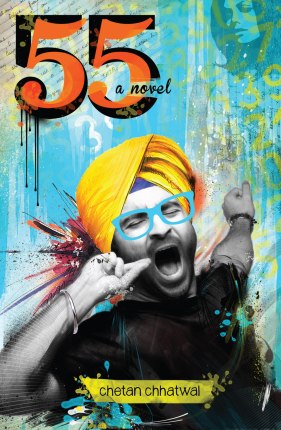The book’s blurb reads: Follow
Every Rainbow is the story of 25 enterprising women who took up a challenge.
They raised a family as well as a company, with love, laughter and patience.
Managing multiple equations – never giving in or giving up. These stories say
one thing loud and clear. Women think and act differently, but they can be just
as successful. What `success’ means, is something only you can decide.
Rashmi Bansal is the author of
four non-fiction books – I Have A Dream, Stay Hungry Stay Foolish, Connect The
Dots and Poor Little Rich Slum. The first three deal with entrepreneurs while
the fourth is a description of Dharavi, Asia’s largest slum.
However, in Follow Every Rainbow,
Rashmi has specifically compiled a list of 25 women entrepreneurs. This
interested me because (a) I am a woman myself and (b) There are not many books
available on women entrepreneurs, especially in India.
What amazed me was that Rashmi
has dedicated the book to her mother-in-law Santosh Bansal. In a country where
Ekta Kapoor’s regressive serials rule the roost, this came across as a
refreshing change. However, as I read through the book, my amazement
diminished. Many of the women entrepreneurs openly credited both their mothers
and mothers-in-law for providing them the kind of support which enabled them to
set-up and run their businesses.
The title of the book has been
taken from The Sound of Music (Climb every mountain, Ford every stream, Follow
every rainbow, Till you find your dream). As she mentions in her note, although
women are as capable as men, the circumstances must allow. However, women shall
show new ways of thinking and doing things.
The book has been divided into
three sections – Lakshmi, Durga and Saraswati. The eight women featured under
Lakshmi are the `ghar ki lakshmis` who brought wealth and prosperity to the
home – by co-opting family members into their business. Circumstances forced
the eight women featured under Durga to be enterprising, to fight for survival;
they rose to the challenge, slaying demons within and without. The nine women
featured under Saraswati are armed with a professional education and they are
carving out an identity through entrepreneurship.
A common theme running across all
the women’s experiences is the immense support they have received from their
family members – parents, in-laws, husband, children, etc. Rashmi makes no
bones about the fact that starting and running a business is tough for a woman
and she will need all the help she can get from her family. Another point
beautifully brought out reading through the book is that children are proud of
the fact that they have a working mother – someone who is doing something on
her own. Most times, women feel guilty that they are not doing enough as a
mother. However, Rashmi’s narrative says that need not be the case. As long as
you have a support system in the form of maids and cooks, in addition to your
family members, you can manage a business. Her advice to women entrepreneurs is
that we underestimate ourselves a lot. We have to be proud of what we are and
whatever we do, we should do it fully; we owe it to ourselves.
What shines across in the book is
the fact that all the women wanted to give back something to society. They were
passionate about what they were doing and did not bother about making profits
in the beginning itself. They were more focused on doing a good job and
satisfying their customers.
The women featured in the book
are from diverse fields such as cooking food (Rajni Bector, Patricia Narayan),
tribal arts (Leela Bordia, Neeti Tah), information technology (Sangeeta Patni),
sculptor (Jasu Shilpi), etc. The eldest woman featured in the book is Ela Bhatt
(79 years) – the founder of SEWA (Self-Employed Women’s Association) and the
youngest is Manju Bhatia (26 years) – Joint Managing Director of Vasuli, a loan
recovery company which employs only female agents.
I personally enjoyed reading
about Meena Bindra (Biba) because my mother and I are huge fans of Biba and buy
quite a lot of their stuff; Nirmala Kandalgaonkar (Vivam Agrotech) because she
is in the unusual business of vermicomposting; Jasu Shilpi because she was
India’s only woman sculptor and Dr. Shikha Sharma (Nutrihealth Systems) because
I have seen her a lot on television.
Rashmi’s writing style is casual
and easy-to-read. She has retained the conversational aspect in a lot of places
providing translations in English where the phrases are in Hindi. She has
conducted detailed interviews with each of the women considering the fact that
each woman’s narrative runs into 10-12 pages. Reading through these, one gets a
fair idea of the business and what it entails. In almost all the narratives,
Rashmi has also mentioned the latest financials – sales turnover and/or profit
figures whichever are available. This helps to get an idea of the size of the
venture.
I urge everybody, especially
every woman, to go and read this book. It is an eye-opener in terms of the
challenges that women are willing to accept and forge ahead; taking their
families together with them in this journey. It also gives insights into the areas
which women are willing to explore and make their mark in.
The surprise at the end of the
book is the fact that Rashmi has provided the e-mail addresses of all the 25
women in case one wishes to get in touch with them for help/advice. She has
also provided a list of useful entrepreneurial courses available at various
institutes and organizations willing to offer flexi-time careers to women.
Pick up this book and you will
not regret it. It will open up your mind like never before to the immense power
of a woman. And in this nation of ours where we worship female goddesses such
as Lakshmi, Durga, Saraswati, Kali, Devaki, etc. it makes immense sense. Respect
a woman, support her in her endeavours and see the magic she creates – that is
the central theme of this book. And every man and woman should remember this. Reading
Rashmi Bansal’s book will ensure we do just that.
I am going with 5/5 for this book.















